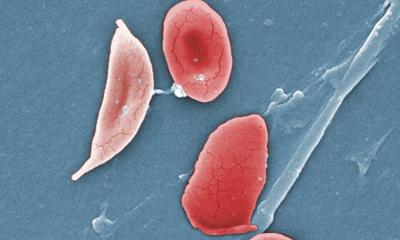MDS assures greater care
By Heidi Heinhold
Germany - PG 11 - a new product group added to the medical technical aids register* relates to decubitus aids.
In December 2005 it was announced that, in June this year, registration regulations for the entirely revised product group 11 (PG 11), in the German statutory health insurance medical technical aids register (HMV), will take effect. This relates to decubitus. For a six-month transitional period previously approved products may be distributed with their old HMV codes. Products registered after 1 June 2006 must comply with the new regulations.
What’s new in product group 11? The register aims to ensure that comparable products provide a solid foundation for the selection of products that respond to an individual patient’s needs. This objective is informed by recent findings, particularly the national standard for the prevention of pressure ulcers and the project examining the interdependence of the causes of decubitus (Ursachenzusammenhänge der Dekubitusentstehung, Krause et al. Hamburg, 2004), which was jointly funded by the German Federal Minister for Family Affairs, Senior Citizens, Women and Youth and the Robert Bosch Stiftung GmbH. Another important source is obviously the relevant international literature, particularly the American national AHCRP Guidelines.
In an application for registry, a manufacturer must provide indications as well as counter indications. In this phase the decision is made as to whether the new aid is a preventive or curative product. Moreover, the manufacturer must prove the product’s therapeutic benefits regarding those indications. The product, for example, needs to ensure proper treatment, prevent imminent damage, or mitigate an existing condition. Also, the benefit must be weighed against risks. Desired and undesired effects of the product’s use must be assessed and the therapeutic benefit, combined with all other registered components (e.g. covers) must be demonstrated.
Implications
PG 11 regulations and manufacturers - The information supplied by a manufacturer on indications and recommendations regarding use and application will be elaborated on, and provided to the customer, i.e. the hospital. These product descriptions will also contain counter indications and point out under what circumstances the product must not be used. If the product is used - despite these warnings - and a patient suffers complications, the nursing staff is responsible.
PG 11 regulations and physicians, nurses and distributors - The product choice follows an assessment based on the Braden scale for adults and the Braden Q scale for children. The authors, however, explicitly state that other scales are also admissible. The assessment doesn’t necessarily have to be performed by nurses on a ward where a patient is located. It also can be performed by other nurses, in out-patient settings, and also by a distributor’s representative. However, the person assessing a patient must be adequately qualified and able to provide the appropriate supplies within 24 hours. The assessment is meant to offer a basis for the selection of a certain product that is comprehensible to the service provider, physician, nurse, supplier as well as the payers - the health insurer and the MDS.
*MDS - The medical technical aids register (medizinischer Dienst der Spitzenverbände der Krankenkassen) the consulting body of the statutory health insurers, which formulates legally binding guidelines and registers.
Further information: www.g-k-v.com
01.05.2006





